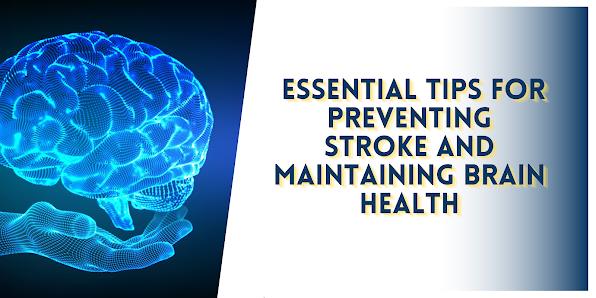Strokes can have a devastating impact on individuals and their families, often leading to long-term disability and even death. However, by taking proactive steps to prevent stroke and maintain brain health, you can significantly reduce your risk. In this article, we will explore some essential tips that can help you protect yourself and ensure a healthy brain.
Understanding Stroke and Its Risk Factors
In order to prevent stroke effectively, it is crucial to understand what it is and the risk factors associated with it. A stroke occurs when the blood supply to the brain is disrupted, either due to a blood clot blocking a blood vessel or a blood vessel bursting. This interruption prevents essential nutrients and oxygen from reaching the brain, leading to brain cell damage.
Several risk factors increase the likelihood of stroke, including high blood pressure, smoking, diabetes, obesity, high cholesterol, and a sedentary lifestyle. Additionally, factors such as age, family history, and certain medical conditions can also contribute to stroke risk.
1. Maintain a Healthy Diet
Avoiding unhealthy foods and adopting a balanced diet is crucial for maintaining brain health and reducing stroke risk. Consume an abundance of fruits and vegetables, whole grains, lean protein, and healthy fats. Limit your intake of processed foods, sugary drinks, and excessive salt, as they can contribute to high blood pressure and other risk factors for stroke.
2. Engage in Regular Physical Activity
Regular exercise is one of the most effective ways to prevent stroke and maintain overall health. Engaging in moderate-intensity aerobic activities, such as brisk walking, swimming, or cycling, for at least 150 minutes per week can significantly reduce your risk of stroke. Additionally, incorporating strength training exercises into your routine can help improve cardiovascular health.
3. Control Blood Pressure and Cholesterol Levels
High blood pressure is a leading cause of stroke. It is important to monitor your blood pressure regularly and take steps to keep it within a healthy range. This can include lifestyle modifications such as reducing salt intake, maintaining a healthy weight, exercising, and avoiding excessive alcohol consumption.
Similarly, high cholesterol levels can contribute to the formation of plaque in the arteries, increasing the risk of stroke. By adopting a heart-healthy diet, exercising regularly, and, if necessary, taking prescribed medications, you can effectively manage your cholesterol levels.
4. Quit Smoking and Limit Alcohol Consumption
Smoking significantly increases the risk of stroke and other cardiovascular diseases. Quitting smoking is one of the most important steps you can take to improve your overall health and reduce your stroke risk. Additionally, limiting alcohol consumption to moderate levels (up to one drink per day for women and up to two drinks per day for men) can help protect against stroke.
5. Manage Diabetes and Other Medical Conditions
If you have diabetes or any other medical condition, it is crucial to manage it effectively to reduce your stroke risk. Follow your healthcare provider's recommendations, take prescribed medications as directed, and make necessary lifestyle changes to keep your condition under control.
Conclusion
Preventing stroke and maintaining brain health requires a proactive approach. By adopting a healthy lifestyle, managing risk factors, and seeking Brain Stroke Treatment in Coimbatore, you can significantly reduce your chances of experiencing a stroke. Remember, prevention is always better than cure when it comes to stroke, so start implementing these essential tips today for a healthier future.

My mother is taking herbal tea for Cancer disease, which is almost in remission. Her Neurologist asked her what she has been doing and she told him about the tea. He said to continue because it's working. I ORDER THE HERBS REMEDIES FROM DR. ABODA SOLUTION REALLY WORKS GOOD, IMPROVING IMMUNE SYSTEM, BALANCE & BOOSTING. YOU CAN GET THE MED FROM
ReplyDeletedr-aboda-solution-home.jimdosite.com/
THANK YOU DOC..